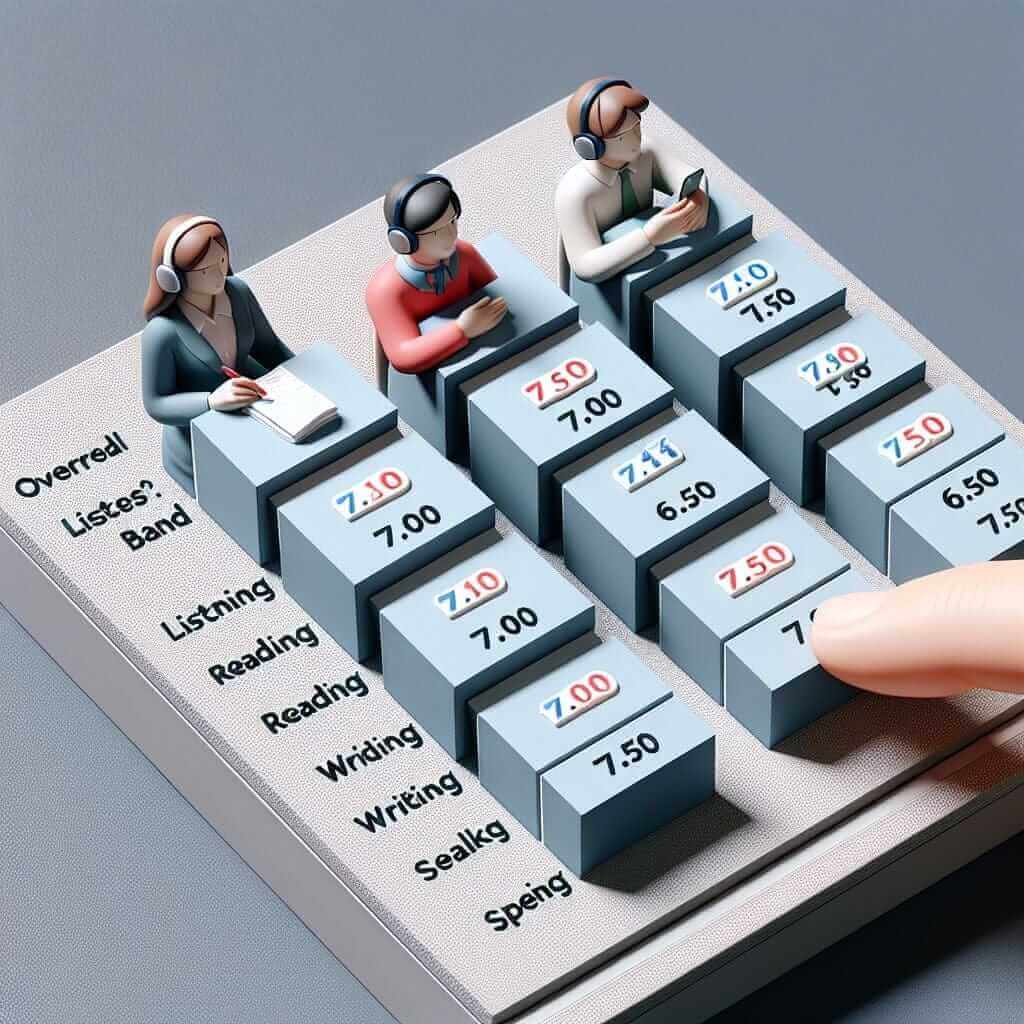As an IELTS instructor with over two decades of experience, I often encounter students feeling puzzled about how their IELTS scores are calculated. Understanding this process can alleviate anxiety and help you strategize effectively for your exam. So, let’s demystify the IELTS scoring system and empower you with the knowledge to interpret your results.
Deciphering the IELTS Band Score
Before diving into the calculation, it’s crucial to grasp the IELTS band score. Unlike traditional exams with pass/fail grades, IELTS employs a band system ranging from 0 to 9, reflecting your proficiency level in English. Each band corresponds to a specific skill level, from non-user (band 0) to expert user (band 9).
The Four Pillars: Listening, Reading, Writing, and Speaking
Your overall IELTS score is a culmination of your performance in four modules: Listening, Reading, Writing, and Speaking. Each module carries equal weight, contributing 25% to your final band score.
Calculating Individual Module Scores
Each module comprises various tasks assessed on specific criteria. For instance, the Listening module has four sections, while the Reading module consists of three passages with questions. Your raw score on each module, based on the number of correct answers, is converted to a band score ranging from 0 to 9.
The Weighted Average: Arriving at Your Overall Band Score
Now, for the grand finale – calculating your total IELTS band score. Your individual band scores for each module are added together and divided by four. The resulting figure is your overall band score, rounded to the nearest half or whole band.

Example:
Let’s imagine your individual band scores are:
- Listening: 7.0
- Reading: 6.5
- Writing: 6.0
- Speaking: 7.5
Your overall band score would be (7.0+6.5+6.0+7.5)/4 = 6.75, rounded to 7.0.
Addressing Common Queries
Here are some frequent questions about IELTS score calculation:
1. What if my overall band score is not a whole number?
As mentioned earlier, your overall band score is rounded to the nearest half or whole band. For example, a score of 6.25 would round down to 6.0, while 6.75 would round up to 7.0.
2. Is there a specific weightage for different question types within a module?
No, all questions within a module carry equal marks. However, some questions might be inherently more challenging, reflecting different cognitive skills tested.
Tips for Success
While understanding the score calculation is essential, remember that consistent effort and strategic preparation are key to achieving your desired band score. Focus on improving your overall English proficiency rather than just aiming for a specific numerical score.
Conclusion
The IELTS scoring system might seem intricate at first glance, but breaking it down into individual components makes it easier to comprehend. Remember, your band score is a reflection of your English language skills, and with dedication and the right approach, you can achieve your desired results.